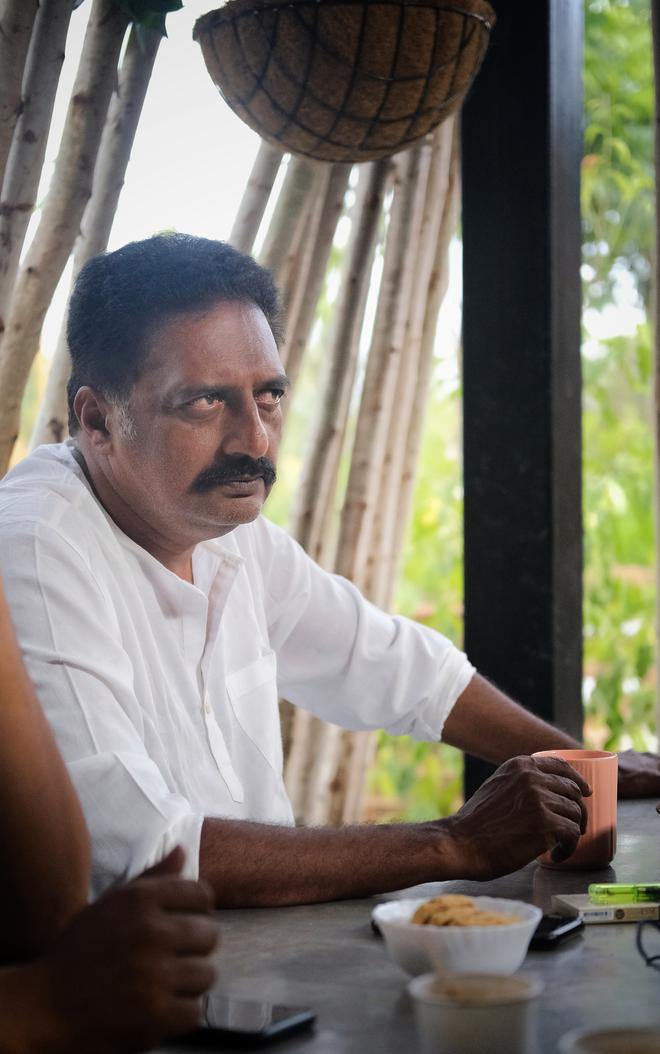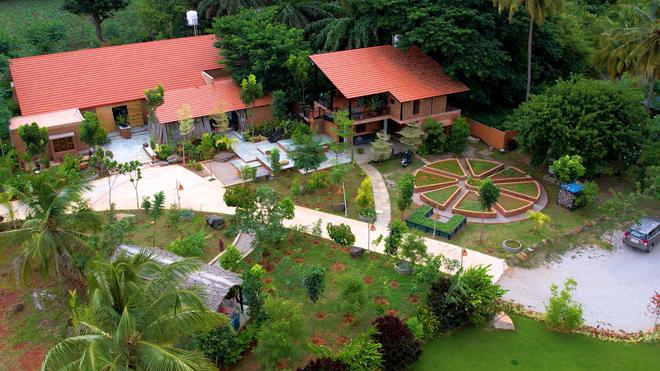
Prakash Raj has been a popular figure in the Indian film industry for more than three decades. Talking about the incubation centre for theatre and arts ‘Nirdiganta,’ in Mysuru, he delves into its objectives — its impact on the theatre community in Karnataka and across the nation and how art is an eternal form of opposition.
Excerpts from an interview:
Are you returning to your roots with Nirdiganta, having started in theatre before moving on to the screen? , then moving to many other things,
There is no question of returning; theatre never left me. Whatever I am today is due to the exposure and perception it gave me. This is another horizon I am seeing in theatre. This centre was not started for me to act in plays, my relevance in theatre is quite different now, and I have a different role to play.
What prompted you to start this centre and what do you think is the need for it?
There are many theatre academies that offer acting diplomas or courses, but what do the graduates do after that?When you study medicine or engineering, you go to work but what do you do when you study theatre or acting? I felt the need to empower such actors. I did not want to create a Prakash Raj’s space or a Prakash Raj’s acting academy, and that is how the idea for an incubation centre came to my mind.

What role will the incubation centre play in nurturing troupes ? What will be the extent of engagement with the creative process? Will you oversee the content?
This is not a one-man job. We have many senior theatre practitioners in the faculty at the centre already, and many more will join us. It will be the vision of a team and not that of a single person. When I was young, it was not just theatre artistes — writers such as P Lankesh, Poornachandra Tejaswi, U.R. Ananthamurthy, Kiran Nagraj, as well as musicians, painters and various artists, would somehow be involved and connected to the theatre. The incubation centre will be run the same way. The next 40 years is the world of youngsters, and with our knowledge and experience, if we can empower the new generation, there will be a lot of people coming into theatre.
How crucial is good theatre for cinema?
Cinema and theatre are different art forms. It is not the specialisation or the technique that is important, what is important is to create sensitive human beings, because they are the source of expression. At Nirdiganta, we are focused on making practitioners understand that there is no need to fear losing — they can learn and unlearn, experiment, and bring out what is deep within them.

How do you view such an incubation centre vis-a-vis a government-run repertory such as Rangayana?
When you seek help from the government, it becomes political. Art should be independent of all kinds of ideologies. Art is an eternal opposition in itself, and that spirit has to be nurtured. Parties will bring in their own people, and it will be a mix of different ideologies. Art must be neutral; it must be inquisitive, seeking, flowing and there must be no agenda behind it. The governance and growth of such centres should be given to curators.
Given that you have a deep engagement with Tamil and Telugu, would you facilitate a conversation between the theatres of these languages?
There will definitely be an engagement with other languages. ‘Nirdiganta’ means horizonless, but I started from my roots and our first production is a Kannada play. In a few months, you will see English, Tamil, Marathi, Assamese and Hindi productions. This is how we want this to grow. We would like to ask directors of other states to come and direct our actors, and we would like our actors to go work elsewhere too.
Will your engagement here be limited to being a facilitator or will we see you on the stage?
(Laughs) Can you stop me from acting on stage? Will I stop myself? There is a new play being churned out and it seems very interesting. It will be a multilingual play in Kannada, Tamil, Telugu and English. I would like to connect with it and work on the possibility of a role there. .







